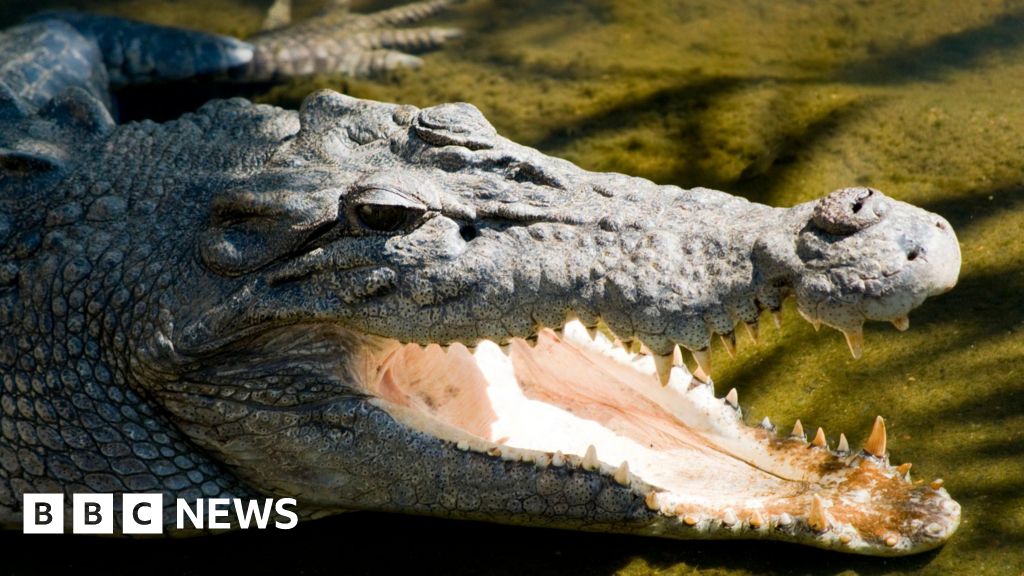Australian police have discovered human remains while searching for a 12-year-old child they believe was the victim of a crocodile attack.
The child was last seen swimming with his family on Tuesday near the remote Aboriginal town of Nganmarriyanga, about seven hours southwest of Darwin in the Northern Territory.
Senior Sergeant Erica Gibson said: “This is devastating news for the families, the community and everyone involved in the search.” She added police would provide support to everyone affected .
Earlier, Sergeant Gibson told ABC News that a black crocodile was spotted in the nearby area.
As many as 40 community members are helping police in the search, which began shortly after the 12-year-old disappeared. They scoured the area on foot, by boat and by helicopter, covering challenging terrain with dense vegetation and narrow, winding waterways.
No details were given on whether the crocodile suspected of attacking the children had been found.
Earlier on Wednesday, Northern Territory Police Minister Brent Porter said wildlife officers had been authorized to “remove” crocodiles from the area after they were spotted and reiterated the government’s safety message.
“Where we live, alligators take over our waters … it’s just a reminder to stay as far away from the water as possible.”
Saltwater crocodiles, found across Australia’s northern fringes – from Broome in Western Australia to Gladstone in Queensland – were once hunted to the brink of extinction, but their numbers have rebounded since hunting was banned in the 1970s .
There are now an estimated 100,000 saltwater crocodiles in the Northern Territory, more than anywhere else in the world. But attacks are uncommon.
There have been at least two crocodile attacks in the Northern Territory last year: a nine-year-old boy was injured while swimming in Kakadu National Park in January, and a farmer escaped a crocodile attack in October by biting its jaws. .
However, Queensland has seen a series of deadly attacks in recent years, including the death of a 16-year-old boy in the Torres Strait in April.

